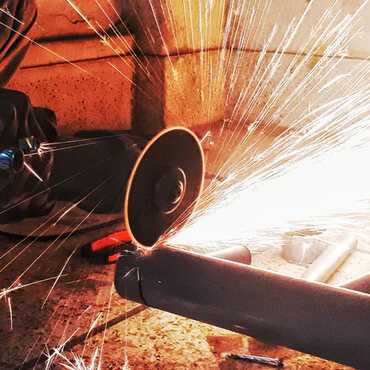Welcome To DEPC Oil and Gas Company.
Loading
Welcome To DEPC Oil and Gas Company.

Australia relies heavily on imported gasoline and diesel, with most of its fuel supply coming from overseas. The country has a limited number of domestic refineries and is vulnerable to disruptions in the global fuel market. While the government is working on improving fuel security through measures like establishing domestic reserves and supporting local refineries, Australia's reliance on imports remains a significant factor.
Here's a more detailed breakdown: 1. Reliance on Imports: Australia imports a large proportion of its liquid fuels, including gasoline and diesel. This reliance on imports makes the country vulnerable to global fuel market fluctuations and potential supply disruptions. The majority of Australia's oil production is located on the North West Shelf, which is some distance from domestic refining capacity on the east coast. A significant portion of Australia's fuel supply comes from Singapore and increasingly from North Asia, including South Korea and Japan. 2. Domestic Refining Capacity: Australia has a limited number of oil refineries, and some of them operate with government support. The government is providing support to maintain domestic refining capabilities through measures like the Fuel Security Services Payment. 3. Fuel Security Measures: The Australian government is implementing various measures to improve fuel security and reduce reliance on imports. These measures include establishing a domestic fuel reserve through a minimum stockholding obligation. The government is also working on building additional storage capacity and improving fuel quality. 4. Potential Vulnerabilities: Australia's reliance on imported fuel makes it vulnerable to global events that could disrupt shipping routes or impact fuel production. A 2025 war game exercise highlighted the potential for significant disruptions to the supply of essential goods if fuel supplies were to be compromised. The exercise revealed that Australia had limited reserves of essential goods like food and medicine, with only a few days' worth in some cases. 5. Alternative Fuels: The use of alternative fuels and new vehicle technologies is increasing in Australia. Biofuels, produced domestically, are seen as a potential avenue for enhancing energy security and reducing reliance on imported fuels.



Our Gasoline, also known as petrol, is a clear, yellowish, flammable liquid derived from crude oil and primarily used as fuel in spark-ignited internal combustion engines. It is a petroleum product, meaning it's made from the refining of crude oil. In addition to its use as a transportation fuel, gasoline is also a component in the production of various other petroleum products.
Transportation Fuel: Gasoline is the most common fuel for cars, motorcycles, and other vehicles with spark-ignited engines. Refining Process: Crude oil is processed in refineries to separate it into different components, including gasoline. Chemical Composition: Gasoline is composed of various organic compounds derived from petroleum, and additives are often included to improve performance and stability. Other Petroleum Products: Gasoline production is linked to other petroleum products like diesel, kerosene, jet fuel, and various petrochemicals. Renewable Gasoline: There is also research and development into renewable or green gasoline, produced from biomass or other sustainable sources.
Gasoline products are primarily solved through petroleum refining, a process that separates crude oil into various components, including gasoline, through fractional distillation and other techniques. This involves separating hydrocarbons based on their boiling points, with gasoline blendstocks being further processed and blended with other components to create finished gasoline products. Quality control, including testing for octane rating and other specifications, ensures the final product meets performance and environmental standards.
Production, in its simplest form, is the process of transforming inputs into outputs, specifically goods or services that satisfy human wants. It involves combining various resources (like raw materials, labor, and capital) through specific processes to create something of value. Production is fundamental to economics, as it creates utility and contributes to economic growth and societal well-being.
Oil sketching is the process of creating quick, expressive artworks using oil paints, often as preparatory studies for larger, more finished paintings. It involves a looser, more direct application of paint than a finished piece, focusing on capturing the essence of a subject quickly. Key aspects include using a limited palette, employing larger brushes, and embracing a more painterly and less detailed approach.
To test for the presence of oil or assess its quality, several methods can be employed. These include simple visual checks, chemical tests, and more sophisticated laboratory analyses. Examining the oil's color, clarity, and consistency can provide initial clues. Dark, cloudy, or sludgy oil may indicate contamination or degradation. Rubbing a small amount of oil on filter paper and looking for translucent spots.
A product delivery refers to the documentation and communication surrounding the process of delivering a product to a customer. This includes details like the delivery address, estimated arrival time, tracking information, and any relevant updates or notifications. It also encompasses the delivery note, which is a document accompanying the shipment detailing the items included.
